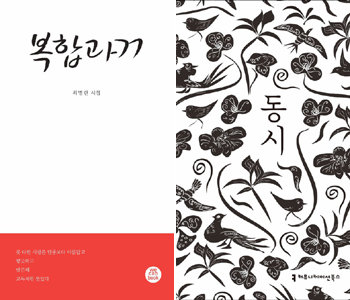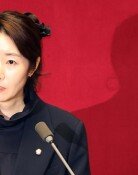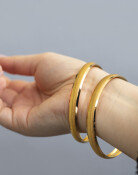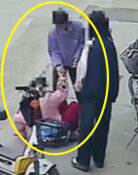Cartel within writers community interrupts eradication of plagiarism
Cartel within writers community interrupts eradication of plagiarism
Posted June. 22, 2015 08:10,

"If she had admitted and apologized at that time, this unfortunate situation would have not have happened . Park Cheol-hwa, 50, a member of the editorial board for the quarterly journal Writers World, learned about controversy over bestseller novelist Shin Kyung-sooks alleged plagiarism during his trip to Japan on Wednesday last week. In 1999, he raised suspicion for the first time over the possibility that Shin might have plagiarized, saying that her novel "Goodbye" copied "Water Family" of Japanese novelist Kenji Maruyama in the journal`s fall issue in 1999. Park claims that publishers thoroughly covered Shin at the time and effectively buried such suspicions.
Controversies over plagiarism have occurred many times involving various writers including veteran Hwang Seok-young, Kwon Ji-ye, and Cho Kyung-ran who received well-known literature awards in the writers community. However, controversy only stayed within the writers community and got buried instantly as the writer in question denied allegations and publishers sought to protect the writer. Critics say that this practice occurs due to secrecy and cronyism involved in the process, in which rookie writers evolve to position themselves as experienced writers.
A purported writer should pass the literature bar exam, a narrow rite of passage including publishing through a major publisher or acquisition of a prize at an annual spring literature contest," a publishing company owner said. "After their debut in the professional writers community, they come to form relationship of junior and senior writers, and mentors and mentees, and eventually turn a blind eye to reciprocal criticism or suspicion over plagiarism.
Upon their debut, writers contribute literary works to quarterly journals of major literature publishers, including Changbi, Munhak Dongne Publishing Group, or Munji Publishing, and publish collections of such literary pieces as books to be able to make living.
For a writer to achieve instant success in career, he or she needs "complimentary review" of his or her books and acquisition of a literary prize. A novelist said, Many writers sought to keep good terms with publishers, believing that even though Shin Kyung-sook disappears from the stage, publishers will remain in power forever. Commenting on criticism of novelist Shin in a Facebook post on Friday by Shin Hyeng-cheol and Kwon Hee-cheol, members of the review panel at Munhak Dongne, literary critic and prof. Moon Seong-woo of Sookmyung Womens University, said, It was prescription that was made after the death of a patient, which has been given due to massive public pressure. Munhak Dongne has just as grave responsibility as Changbi. Articles, interviews and reviews on Shin Kyung-sooks novels that were conducted through Munhak Dongne were to a large extent overstatement or overly generous reviews that went beyond literary affection (for her).
Another cause for repeated suspicions over plagiarism is the lack of specific criteria that allows for defining of plagiarism due to lack of standards for plagiarism in literary works. There are no specific standards in provisions in Korean copyright acts that clarify overlapping of a certain number of words or phrases constitute plagiarism, said Kim Chan-dong, head of the legal system research team at the Korea Copyright Commission. Whether copyright has been violated or not is determined based on probability meaning the possibility of plagiarism that is deemed to have been committed when the court viewed the original copyrighted material, or practical similarity between two literary works in questions."
The music and academic communities created guidelines of their own and have been coping with plagiarism issues accordingly, although such guidelines are not legally binding. Newly established standards in the music community suggest that it is regarded as being plagiarism when two measures are exactly the same, while that in the academic community suggest it is construed as being plagiarism when expressions of more than six successive words coincide or hypotheses or data are similar. However, minimal guidelines on plagiarism do not exist in the literature community.
Committee to publish a White Paper called for giving-up of excessive greed held by major publishing companies, enhancing of moral standards for the writers community, devising of specific standards for plagiarism and rules on disciplinary actions, and publishing of a White Book on plagiarism issues.
Park Cheol-hwa, the member of the editorial board, said, Novelist Shin made a mistake to some extent, but large publishing firms should also reflect upon excessive commercialism first. Jang Eun-soo, former chief editor of Minumsa Publishing said, The intention to forgive because it is an issue of plagiarism involving well-known bestseller writer is indicative of low moral standards in the writers community in Korea, adding, In an era when even politicians fail to win senior government positions due to acts of self-plagiarism, only the writers community has failed to keep abreast of the conscientious standards of society.
Kyung Hee University professor Lee Myung-won said, Like the academic community that has guidelines on research ethics, the literary community should also devise specific code of ethics and guidelines on disciplinary actions. Prof. Kwon said, We should make the so-called a writers ethics committee, and publish a White Paper that comprehensively reviews acts of plagiarism that have been committed thus far.
tigermask@donga.com







